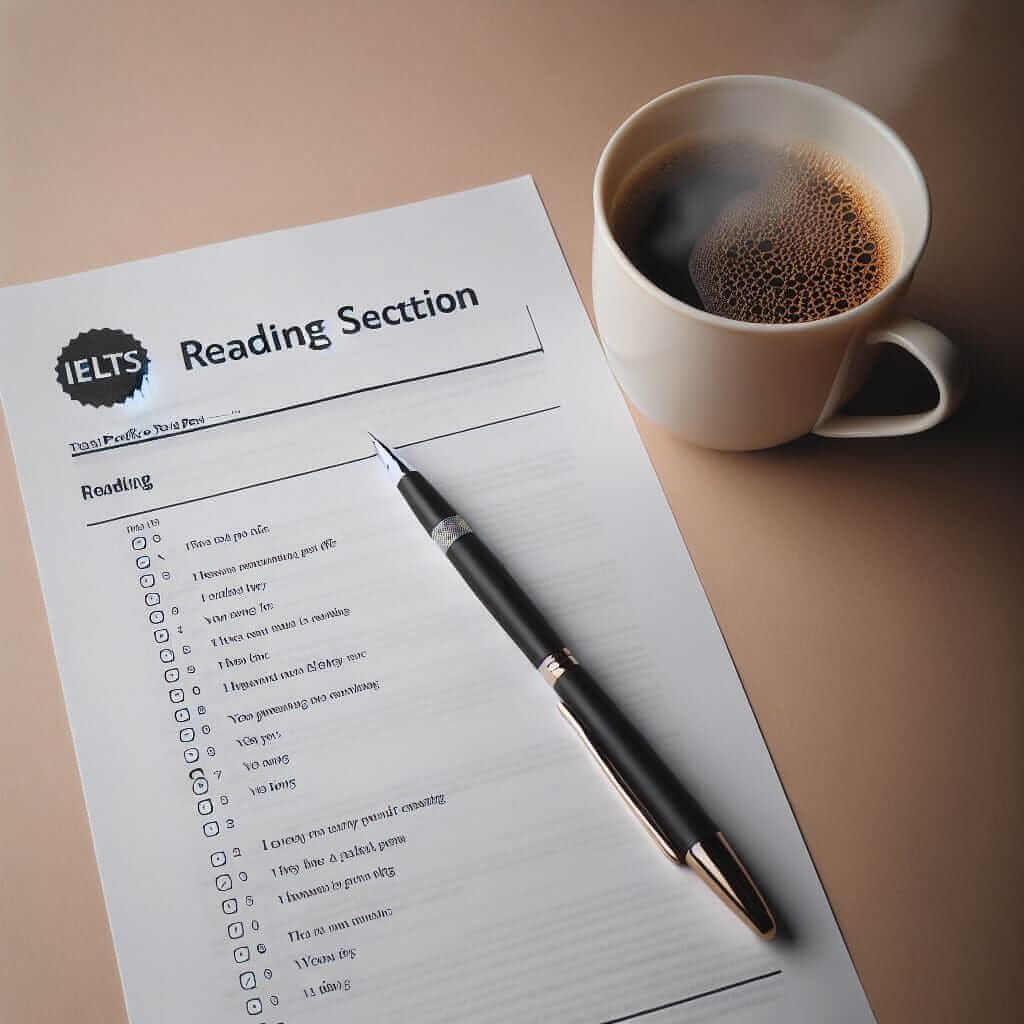For many aspiring English language learners, achieving a band score of 7.0 in the IELTS Reading test is a significant goal. It reflects a high level of English proficiency and can open doors to academic and professional opportunities. As an IELTS instructor with over 20 years of experience, I’ve helped countless students conquer this challenge. In this comprehensive guide, I’ll share my insights and proven strategies to help you attain that coveted 7.0.
Understanding the IELTS Reading Test
Before delving into the strategies, it’s crucial to understand the structure and assessment criteria of the IELTS Reading test. The test assesses your ability to:
- Comprehend the main ideas: Identify the central theme and key supporting points of a passage.
- Identify specific information: Locate specific details, facts, or figures within the text.
- Understand inferences and implied meanings: Draw logical conclusions based on the information provided.
- Recognise the writer’s opinions, attitudes, and purpose: Analyse the author’s tone, perspective, and intentions.
Effective Strategies to Boost Your Score
1. Master Time Management
Time management is paramount in the IELTS Reading test. You have only 60 minutes to answer 40 questions based on three lengthy passages.
- Allocate Time Wisely: Divide your time equally for each passage, aiming to complete each within 20 minutes.
- Skim and Scan Efficiently: Skim the passage to grasp the main idea and then scan for specific information while answering questions.
- Don’t Get Bogged Down: If you struggle with a particular question, move on and return to it later if time allows.
2. Enhance Your Vocabulary
A strong vocabulary is crucial for understanding complex passages.
- Read Extensively: Expose yourself to a variety of English texts such as newspapers, magazines, academic journals, and novels.
- Use a Dictionary Strategically: When encountering unfamiliar words, try to infer their meaning from the context before looking them up.
- Focus on Synonyms and Paraphrasing: The IELTS often uses synonyms and paraphrasing to test your comprehension, so pay close attention to different ways of expressing similar ideas.
3. Develop Effective Reading Techniques
- Scanning for Specific Information: This technique involves quickly locating specific details like names, dates, or keywords.
- Skimming for the Gist: Skimming helps you grasp the main idea and overall structure of the passage without focusing on every word.
- Intensive Reading for Detail: When required to answer questions requiring deeper understanding, employ intensive reading to carefully analyze specific sections of the text.
4. Practice with Authentic Materials
Familiarize yourself with the types of passages and questions in the IELTS Reading test by practicing with past papers and sample tests available on the official IELTS website.

Analysing a Sample IELTS Reading Question
Let’s examine a sample question from a past IELTS Reading passage:
Passage Excerpt: “The invention of the printing press in the 15th century revolutionized the dissemination of knowledge. Prior to this groundbreaking innovation, books were painstakingly handwritten, making them rare and expensive.”
Question: What was the primary impact of the printing press?
Answer: The printing press revolutionized the spread of information.
Explanation: This question tests your ability to identify the main idea of the paragraph. The passage states that the printing press “revolutionized the dissemination of knowledge,” clearly highlighting its primary impact.
Tips for Achieving a 7.0 in IELTS Reading
- Practice Regularly: Consistent practice is essential to improve your reading speed, comprehension, and test-taking skills.
- Focus on Grammar and Vocabulary: A strong grasp of English grammar and a wide vocabulary will significantly enhance your understanding of complex texts.
- Develop Effective Reading Habits: Cultivate habits such as underlining keywords, summarizing paragraphs, and making notes to enhance your comprehension and retention.
- Seek Feedback from Experienced Tutors: Professional guidance from an experienced IELTS instructor can provide valuable insights, identify areas for improvement, and offer personalized strategies to boost your score.
Conclusion
Achieving a 7.0 in IELTS Reading requires dedicated effort, effective strategies, and consistent practice. By following these tips and honing your reading skills, you can confidently approach the test and unlock a world of opportunities. Remember, success in IELTS, like any endeavor, is a journey, not a destination. Embrace the process, stay persistent, and celebrate your progress along the way.